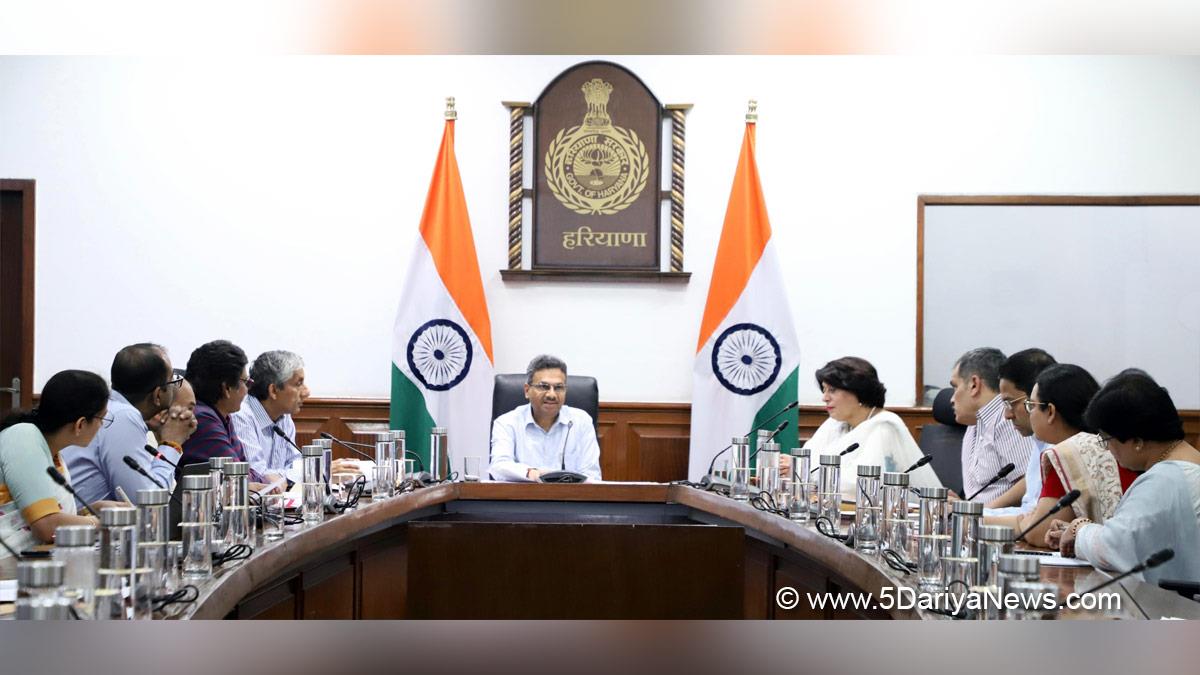Haryana removes compliance burdens, scales MSME clusters & pushes digital governance in Tier 2 & 3 cities

In a comprehensive push to streamline governance, catalyse MSME growth, and improve ease of doing business, the Haryana Government has unveiled a series of reforms focused on Tier 2 and Tier 3 cities. Chief Secretary Anurag Rastogi chaired a high-level meeting today to review progress on the Action Points arising from the 4th Conference of Chief Secretaries.
Compliance Simplification and Legal Reforms
The meeting was informed that the state has eliminated 446 outdated compliance requirements under 14 major Central and State laws and decriminalised 27 minor offences. All updates have been uploaded to the DPIIT portal as part of the national Reducing Compliance Burden (RCB) initiative.Haryana is also aligning its statutes with the Jan Vishwas Bill, aiming to decriminalise 50 additional provisions across 231 Acts by year-end.
To date, 838 business-facing and 271 citizen-facing compliances have been simplified. In a bid to bring infrastructure planning under a unified digital umbrella, Haryana has made it mandatory for all infrastructure projects over ₹100 crore to be routed through the PM Gati Shakti National Master Plan.
These projects will undergo a multi-tier approval process involving the Network Planning Group, Technical Support Unit, and the Empowered Group of Secretaries, with final clearance by the Chief Minister.
Plug-and-Play Industrial Parks for MSMEs
It was informed in the meeting that under its “Cluster Plug and Play” scheme, Haryana has approved 33 industrial park projects across smaller towns with combined grant support of ₹164.54 crore. The scheme, which enables rapid enterprise setup through flatted factories, has been extended till June 2025.
Additionally, the state is rolling out mini-industrial parks in all 143 blocks under the PADMA initiative. Three parks are under construction, with seven more targeted for completion this fiscal year.The “Invest Haryana” portal has become a key interface for businesses, offering 140 services across 29 departments, with 20 more district-level services to be added this year.
A major overhaul of the Single Window System is planned by end-2025, including real-time dashboards, predictive analytics, and an AI-based chatbot. Clearance times have already halved—from 24 to 12 days—since 2022 due to workflow automation and transparent tracking.
Over 8,800 DPIIT-registered startups have taken root in Haryana under the 2022 State Startup Policy, with 45% led by women. The state is supporting incubation, mentoring, and seed funding, especially through facilities like the Innovation & Startup Hub in Gurugram. Ten new incubation centres are slated to be launched in Tier 2 and 3 cities this year, along with lease subsidies and government-supported mentoring.
50 more Common Facility Centres planned
Haryana has set up 30 Common Facility Centres (CFCs) under the Mini Cluster Development Scheme, providing shared access to advanced machinery and export facilitation. Clusters in Sirsa and Rewari alone have generated thousands of jobs. The state now aims to establish 50 more CFCs and one PADMA park in each district by 2026.
Renewable Energy Training and Matrushakti Yojana
A total of 105 Industrial Training Institutes (ITIs) in Haryana have been converted into Renewable Energy training hubs, with over 4,400 trainees being skilled in solar and green technologies. Women entrepreneurs are also being supported through the Haryana Matrushakti Udyamita Yojana, which offers loans up to ₹5 lakh with a 7% interest subvention.

Comments are closed.